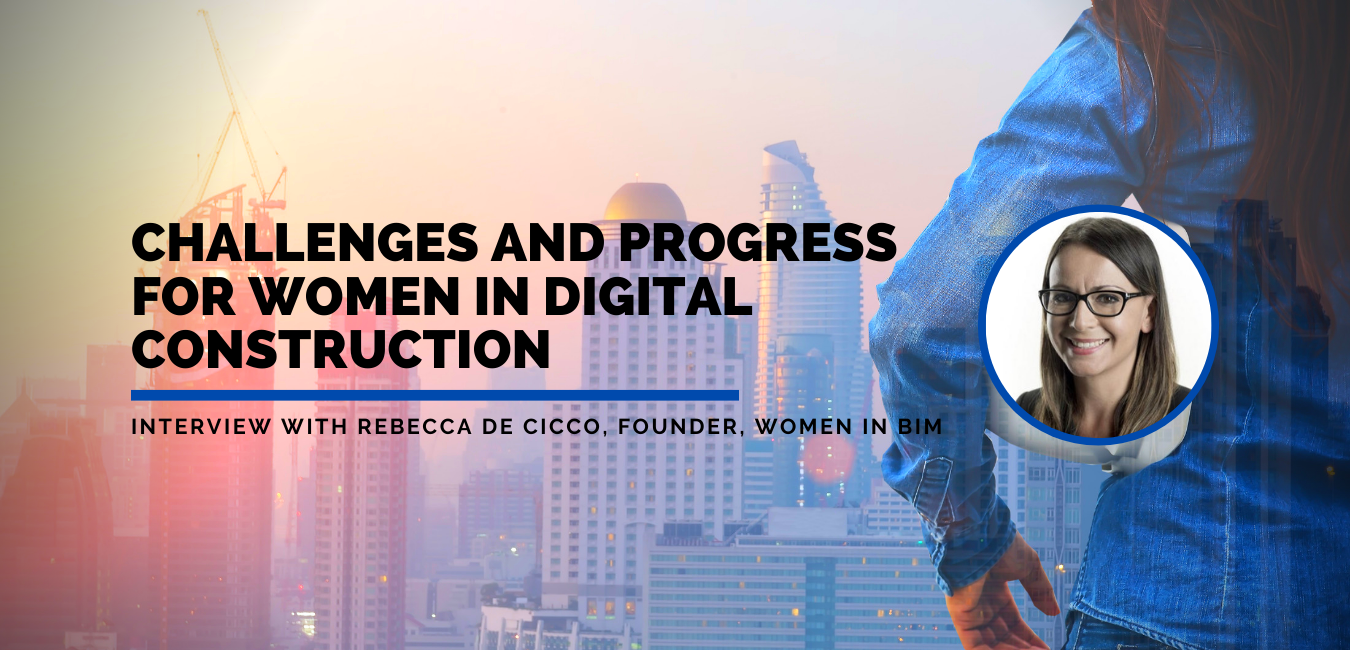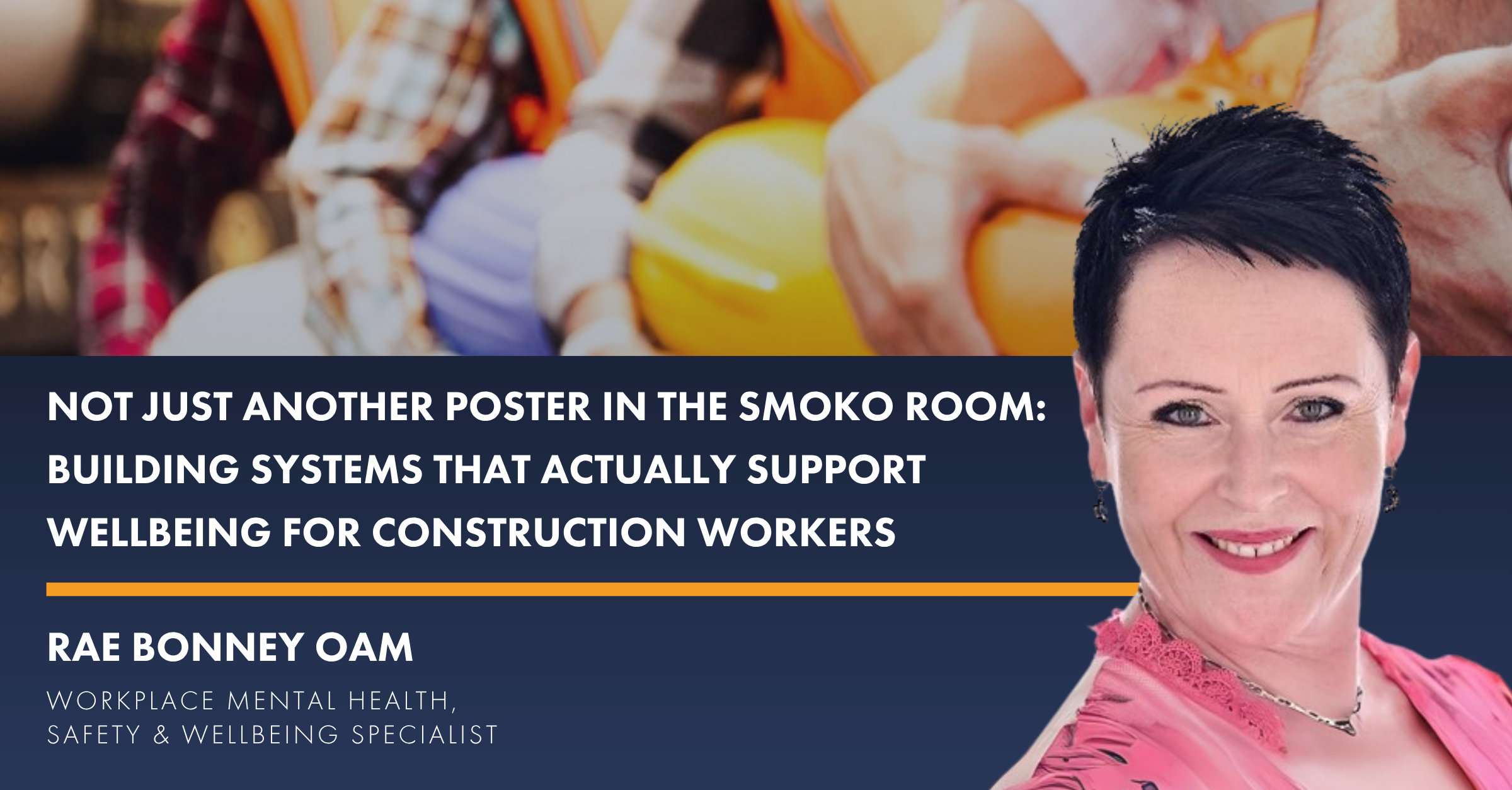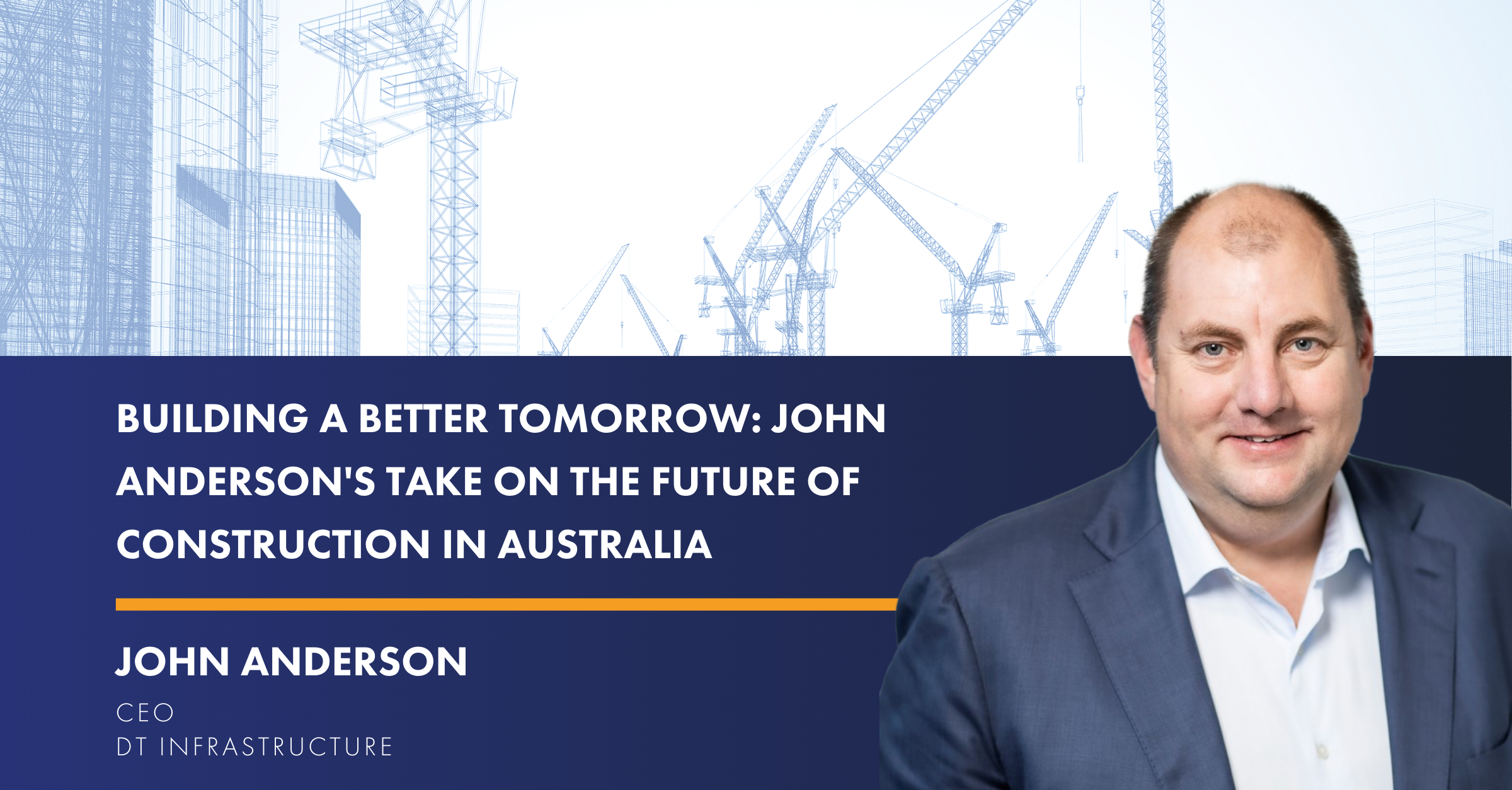Rebecca De Cicco is the founder of Women in BIM, an organization with a mission to create a global online community of female BIM professionals. She is also the director of Digital Node, a UK-based BIM Consultancy supporting the AEC industry. Rebecca sat down with us to chat about digital construction, opportunities for technology in construction and women in the industry.
FuturePlace: What got your career started in construction, especially digital construction?
Rebecca De Cicco: I started off my career with a Bachelor’s degree in Architecture and I always had a keen interest in digital technology prior to this journey. I developed many core skills at University in technologies to support the design and construction process. I was always interested in developing this type of knowledge further. Having worked in the Construction industry in the UK for 10 years, I became interested in the digital strategy embedded within the UK government’s objectives and the policy developed to support BIM implementation. That was where I saw a great opportunity to start a business supporting the industry in achieving these goals. This not only included education in technologies supporting how we deliver projects, but also in a strategy and framework for companies to strategically adopt digital principles for their organizations.
FP: There’s a lot of room to learn in those areas, especially if there’s any resistance to adopting technology. Where do you see the best opportunity for technology to assist in construction?
RC: In terms of opportunities for the Construction industry, there are vast benefits for all organizations working in construction to become more consistent in the way information is delivered. Formulating a consistent approach toward delivering construction projects is a key area I support our clients in. For example, we consult in the application of industry standards to adopt digital principles such as the ISO 19650 series. When embedding consistency in the way we adopt digital processes, as well as the documentation created on a project to support consistent delivery of these processes, greater productivity and efficiencies can be discovered in construction projects.
FP: That makes a lot of sense as technology is often supposed to assist in productivity and overall efficiency. What are some hurdles that technology will need to overcome to become successful in construction?
RC: The rapid rate of development and evolution of technology, not only in the construction industry but across all fields and industries is generally a barrier to the adoption of digital methodologies. To procure a resource within a business to keep up to speed with these changes is critical to the success of a business. But that’s not always easy. This hurdle is generally one which we see regularly across our projects. We’ll see that software updates and general changes to the way technologies evolve create a barrier for teams to adopt new processes and principles. The other main hurdle is the resistance to adopt technology which may change and alter how projects are delivered. With tight deadlines and pressures on cost and time, construction companies are hesitant to change how they work and generally fall behind other industries in adopting these types of new processes and methodologies.
FP: I know there are a lot of challenges in tight deadlines and sometimes being able to step back long enough to create new ways to do things can feel impossible. Speaking of challenges, you’re a woman in the construction industry, which isn’t typical and you founded a group about it. Can you tell me more about that?
RC: I am an advocate for diversity and inclusion in the built environment. In my experience and based on my knowledge, I feel that there are numerous hurdles for women when it comes to entering a career in digital construction. This is why I founded the global diversity group, Women in BIM, aimed to support women in entering and working in BIM-related careers.
FP: That’s excellent. Do you have any advice or tips for women that are or may be interested in digital construction?
RC: My best advice is to find those organisations to work for that represent your core beliefs. As an individual, I found one of the most important barriers was working within a company that didn’t believe in and encourage women in their roles. We have different skills, different needs and often differing ideas about digital construction. Working for entities who support these ideas is crucial to a successful career for Women in BIM.
FP: I know you’ve forged a path but hopefully you’ve noticed some improvements in recent years. What have you seen in the construction industry that bodes well for diversity and inclusion?
RC: As an Architect for many years, there was always good representation and diversity across most of our projects. Where I have seen a lack of this is in more senior positions both within companies I have worked for as well as projects I have worked on. I feel like that could change if the industry strategically pushed diversity during procurement. For example, procuring organizations who potentially prequalify with some form of qualification or proof of their diversity policies across their businesses. That would be a sure fire way that we could promote diversity across our sector. Diversity in general promotes greater collaboration and openness as well as supporting more open and specific knowledge, skills and people across projects. This kind of diversity is also proving to be a consistent growth factor for businesses globally. They’re seeing that the appointment of senior executives across a board in a diverse way can contribute to the success and overall profitability of that company.
Diversity, Equality & Inclusion in Real Estate Forum
Rebecca will be speaking at our upcoming Diversity, Equality & Inclusion in Real Estate Forum, taking place on 4 February 2021. Get insights into effective ways to change the culture of an organisation, and how together we can begin to transform our industry for the better.






